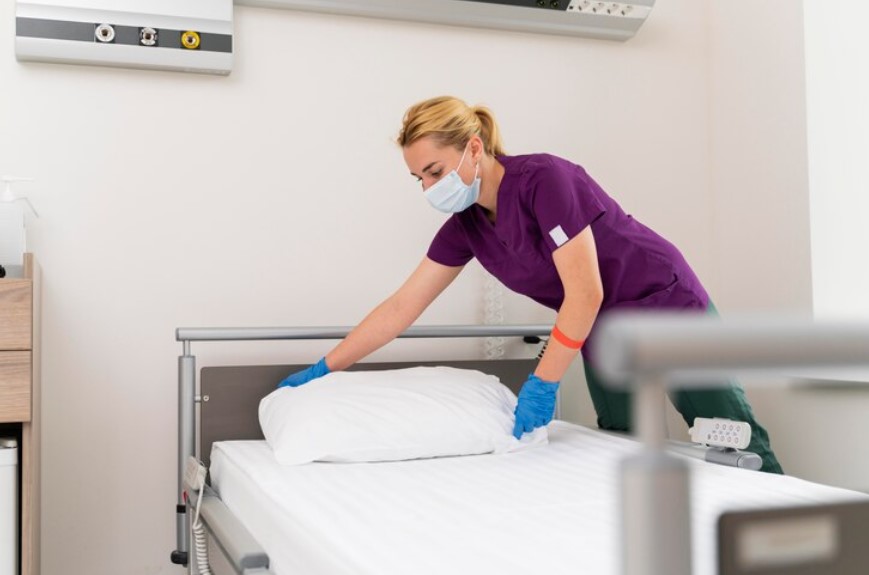14
Aug 2025
Practical Tips for Finding Comfort and Convenience During Medical Stays
Published in Travel Tips on August 14, 2025

When you or a loved one needs to stay near a hospital, whether for treatment, recovery, or supporting a patient, the last thing you want to worry about is finding a suitable place to stay, Melbourne, known for its world-class medical facilities, has a range of hospitals scattered across the city, including The Royal Melbourne Hospital, The Alfred, and St Vincent’s Hospital. Each attracts not only locals but also interstate and international patients, making demand for nearby accommodation high. Knowing your options—and how to choose wisely—can make a stressful time a little easier.
1. Understand Your Accommodation Options
Hospital stays vary in length, and so do the lodging choices. Common options near Melbourne’s major hospitals include:
- Hotels – Good for short stays, often offering daily housekeeping, meals, and on-site amenities.
- Serviced apartments – Ideal for longer stays, these come with kitchen facilities, laundry, and living spaces for a more “home-like” feel.
- Specialist hospital accommodation – Some hospitals offer on-site or nearby low-cost lodgings for patients and their families.
- Airbnb and short-stay rentals – Provide flexibility, though availability can vary.
For instance, if you’re seeking accommodation near St Vincent’s Hospital in Fitzroy, you’ll find a mix of serviced apartments, boutique hotels, and budget lodges within walking distance, catering to different budgets and comfort levels.
2. Location Is Key
When dealing with medical appointments or daily visits, proximity matters. Aim for accommodation within a 5–15 minute walk or a short tram ride from the hospital. Being nearby not only saves on transport costs but also reduces fatigue—especially important if you’re recovering from treatment or visiting frequently.
Melbourne’s hospital precincts are generally well connected by public transport. For example, St Vincent’s Hospital sits close to tram routes along Victoria Parade, making nearby suburbs like Fitzroy, Carlton, and Collingwood convenient bases.
3. Look for Comfort and Accessibility
During medical-related stays, comfort and accessibility can significantly impact your overall well-being. Consider the following features:
- Lift access for those with mobility issues.
- Quiet rooms away from busy streets for better rest.
- Self-catering facilities so you can prepare meals suited to your dietary needs.
- Flexible check-in and check-out times in case appointments run late.
Some serviced apartments even offer wheelchair-friendly layouts, grab rails in bathrooms, and hospital bed arrangements if needed—worth checking when booking.
4. Consider Length of Stay Discounts
If you anticipate an extended stay, inquire about weekly or monthly rates. Many serviced apartments and long-stay hotels in Melbourne offer discounts for bookings beyond seven nights. This can significantly reduce costs compared to paying standard nightly rates.
For families staying near hospitals like The Alfred or St Vincent’s for ongoing treatments such as chemotherapy or rehabilitation, these extended-stay deals can make a big financial difference.
5. Check for Hospital Partnerships
Some accommodation providers partner directly with hospitals to offer patient or carer discounts. Ask the hospital’s patient services team or social workers if they have a preferred provider list. These partnerships often include:
- Discounted rates
- Free shuttle services to the hospital
- Flexible booking changes
For example, certain apartment hotels near St Vincent’s Hospital have arrangements to support patients with reduced rates and tailored facilities.
6. Factor in Transport and Parking
If you’re driving, check the availability and cost of parking. Hospital parking can be expensive and limited, so an accommodation option with free or discounted parking could save you a lot.
If you’re relying on public transport, make sure your accommodation is close to a tram stop or bus route. Melbourne’s Myki card system makes it easy to get around without a car, and hospital areas are generally well-served.
7. Read Reviews and Ask Questions
Online reviews on platforms like Google, TripAdvisor, and Booking.com can provide valuable insights from past guests—especially those who stayed for medical reasons. Look for comments about noise levels, cleanliness, staff helpfulness, and proximity to the hospital.
Don’t hesitate to call the property directly and ask:
- Is there a lift?
- Are there quiet rooms available?
- Can I extend my stay at short notice?
- Are there cooking facilities?
8. Plan Ahead for Peak Periods
Melbourne hosts major events year-round, from the Australian Open to the Grand Prix, which can quickly book out city accommodation. If your hospital visit coincides with one of these events, book as early as possible to avoid inflated prices or limited choices.
9. Look After Your Well-being
Choosing accommodation is not just about convenience—it’s also about supporting your mental and physical health. A place that feels safe, clean, and comfortable can help you rest better, recover faster, and cope with the stress of medical treatment or visiting.
Small touches like natural light, a kitchenette, or a nearby park (Fitzroy Gardens, for instance, is close to St Vincent’s Hospital) can make a big difference in how you feel during your stay.
Final Thoughts
Whether you need to stay near Melbourne’s hospitals for a few nights or several weeks, taking the time to research and plan your accommodation will pay off. Focus on proximity, comfort, and flexibility, and look out for hospital partnerships or long-stay discounts to keep costs manageable.
If your journey takes you to St Vincent’s Hospital in Fitzroy, rest assured there’s a variety of nearby accommodation options—ranging from serviced apartments with full amenities to budget-friendly lodges—all within easy reach of the hospital’s doors.
Finding the right place can help you or your loved ones focus on what matters most: health and recovery.









